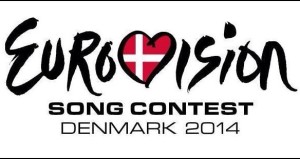
The 2014 Eurovision Song Contest ended up being a big farce. DR blames Wonderful Copenhagen, who then blames DR, and in between stand the politicians demanding all papers publish and a thorough invistigation. No one wants to take responsability for how an estimated cost of 33 million turned into 112 million, and nearly killed this year’s contest.
It was a clear case when Danish broadcaster, DR, a few weeks ago published their papers including the contract which clearly says that DR pays for the show part. Host City Copenhagen (HCC) with wonderful Copenhagen in the lead pays everything else. Now that the tourists organisation published their papers things took a different turn.
Wonderful Copenhagen don’t deny that they signed the contract, but in a 33 pages long document they explain how they think DR interpreted the contract wrongly as it wasn’t taken into consideration by them that it was an old raw building which would only be temporary improved for the contest. In these papers Wonderful Copenhagen also blames both DR and EBU for demanding things they don’t think were needed.
Establishment and run of B & W hallerne as a Eurovision venue ended up costing a total of 91,3 million kroner with 18,4 million kroner expected. It is 94% of the budget increase which is to be found here. HCC (Wonderful Copenhagen, Copenhagen Municipality and the Region of Copenhagen) puts focus on a few major keyposts:
Establishment of tent city and facilities:
HCC planned that many facilities such as make-up, hairdresser, wardrobes and storage would be placed inside the arena itself, which there was space for with DR’s original stage design and the placing of audience.
From the signing of the contract and up until February 2014 DR changed lots of things, which in the final plan made it clear to HCC that these things which they planned inside the arena had to be moved outside to the backstage area where more tents and portable cabins were needed. This area had to be significantly extended. In order to have space for it earth had to be removed and the ground prepared so that the tents wouldn’t sink down in rain and that trucks could drive there.
The moving of these functions ended up costing 20,9 million kroner.
Removing the carrying pillars:
HCC admits that they knew that the pillars were carrying and that it was a demand from EBU that they had to be removed. They estimated this to cost zero money as the owner of B & W hallerne, REDA, would pay for that. It was expected that it would cost 2 million kroner, which REDA agreed to pay.
The estimation was based on that the ceiling would be able to carry without these pillars up until after the Eurovision Song Contest where they would be re-established. In December 2013 they were made aware of by DR that due to their light and sound equipment the ceiling couldn’t cope and had to be made stronger in relation to the removal of the pillars.
The removal of the carrying pillars ended up costing 11 million kroner. REDA would only pay the first agreed 2, and HCC had to ask the municipality and the region of Copenhagen for extra money, which was then provided in February. In total they had to pay 8,9 million kroner where they first expected nothing as REDA were to pay.
Placing of light and sound:
Based on what DR originally wrote that they needed HCC came up with a solution for establisment of light and sound where the hanging spots were placed over the stage. That costed 500.000 kroner. Wonderful Copenhagen describe it as a traditional solution. It was also due to this that the removal of the carrying pillars at first wouldn’t be that expensive.
HCC had already started the work of this when DR in February 2014 told them that their first needs weren’t complete. The original solution had to be replaced with a far more comprehensive solution where the hanging spots would be spread over the majority of the two halls.
The wanted solution from DR costed 14 million kroner. HCC didn’t want to pay that as they believed that they had delivered a perfectly fine solution based on DR’s first requirements. The two parts were also in disagreement about some cables in relation to this. They agreed to solve it after the Eurovision Song Contest – and in July DR and HCC settled on paying half each. Wonderful Copenhagen writes that their legal adviser had told them that this would be a fair settlement and that there was no need to take it to court.
Therefore what was planned to cost 500.000 ended up costing HCC 7 million kroner.
Heat consumption:
Before the budget was made HCC talked to DR, but also Malmö arena about their experiences from the 2013 Eurovision Song Contest. In the contract with DR a demand of 20-25 degrees 24/7 was mentioned. HCC knew from Malmö arena that the biggest problem here wasn’t to make the heat, but to cool down as the equipment would generate so much heat that air condition should be on the budget rather than heating itself.
HCC estimated air condition to secure the promised temperature to cost 400.000 kroner. It however turned out that the raw old factory buildings built it the 60’s with a completely different purpose could not be compared to the rather newly built Malmö arena. Afterwards it also turned out that the general law of physics about warm air being lighter than cold air, and therefore rises, also applies to B & W hallerne! As the heat gathered itself under the cealing a circulation system was established to re-use the heat. Unfortunately this wasn’t enough either as the arena still was too cold. HCC tried to get DR to lower their temperature requirements, but DR told them that technical equipment like the LED wall couldn’t stand a lower temperature. HCC writes that this however couldn’t be confirmed by the manufacturs.
DR sticked to what was promised them in the contract. A number of oil-fired boilers had to be placed outside to blow heat into the arena. This ended up costing 9,6 million more than expected for this post.
Security and monitoring:
Wonderful Copenhagen writes in their explanation that this post was based on two things:
1. That they would only be doing security checks in terms of checking accreditation badges and bag search, and that the police would take care of actual monitoring the area.
2. That the task could be done by volunteers.
In January they became aware of that the police wouldn’t handle the monitoring task. As more facilities were moved from the arena to the backstage area outside, the area to monitor became bigger and more guards were needed. At the same time they realised, under pressure from the union, that they couldn’t use volunteers for everything, but had to hire professionel guards. As they also faced that the volunteers that did work with this weren’t reliable, even more professionels were hired.
Lack of a specific manual from EBU regarding security was also problematic as Wonderful Copenhagen writes it in their report. They suggested to bring down the cost by only doing security check just before the first semi-final as that would reduce the need for extra people and X-ray mashines to only one week. HCC blames DR and EBU for not allowing that.
How they planned it to work with rehearsals and press conferences, and the daily work from the press, in the first week is not mentioned just as they don’t adress the fact that during DR’s technical rehearsals in the weeks up until it started someone managed to walk straight into the arena, record some videos and publish them online.
HCC’s budget of 1,3 million kroner for this post ended up costing 8,9 million.
Cleaning:
In the original budget HCC didn’t operate with any cleaning at all. They estimated it to be so little that it would just be included in the other posts. The reason for that is again that most of the cleaning was expected to be done by volunteers. In the autumn of 2013 the union 3F, where most cleaners are members of, informed HCC that they wouldn’t allow larger cleaning tasks to be done by volunteers. It also turned out that cleaning was needed in the backstage area already from 1st of March in terms of daily vacuuming and floor mopping at a point where the area still pretty much was a construction place.
As volunteers only could be used for lighter cleaning this post, which wasn’t on the budget originally, ended up costing 2,9 million kroner.
Final conclusion by Wonderful Copenhagen:
Wonderful Copenhagen writes on behalf of HCC that many factors played a part in the gigantic deficit, but that most of it can be summarised to that "it ended up being a very ambitious building and show project, more than just a traditional event". They also make it clear that they are not solely to be blamed as they write that all involved parts can take pride in the big success the 2014 Eurovision Song Contest was, but should also take responsability for the deficit.
In the report Wonderful Copenhagen also makes it clear that their tasks regarding key-exchange, opening ceremony, Fan Mile, Euro Club, Afterparty etc all were on budget and done cheaper than for the 2013 Eurovision Song Contest in Malmö.
They state that the assistant director in Wonderful Copenhagen resigned from his position, and that they otherwise have learned that contracts needs to be a lot more specific than this one was. The contract clearly writes that DR were responsable for the show part, and HCC for everything else. As the contract isn’t clear about what is covered by "everything else" DR and EBU kept asking for things and never accepted the perfectly fine cheaper solutions HCC suggested. That is how things are seen from Wonderful Copenhagen’s point of view.
DR’s viewpoints:
From DR’s point of view things are clear. They state that they asked for what was needed to make the great show, and that HCC from the beginning knew that some posts weren’t final thus more costs would come later in the process. They also say that they knew that HCC had underestimated things and that they did warn about these things. This is backed up by that the meeting documents, where DR on the 15th of January said that "In worst case Denmark will have to skip its hosting turn" and as late as on the 7th of April that "the situation is still critical in relation to the contest happening".
EBU’s response:
As the European Broadcasting Union, EBU, is also being blamed here EuroVisionary asked for their response to this whole situation. They answer: We’d like to point out that we have not made any direct demands to Wonderful Copenhagen / HCC as we cooperate directly only with the Host Broadcaster. In addition to that, our requirements for the 2014 Eurovision Song Contest were virtually identical to previous Eurovision Song Contests in the recent years.
In our judgement, DR has always been well aware of the challenges related to the B&W Hallerne, and has, as far as we know, always communicated these challenges clearly to the parties involved in order to find constructive solutions in the best interest of the Eurovision Song Contest and all its stakeholders.
You might also like to read:
- What does it require to host the Eurovision Song Contest?
- Eurovision 2014: Problems with carrying pillars known BEFORE Copenhagen was chosen
- This is the story of the massive deficit of the 2014 Eurovision Song Contest




















